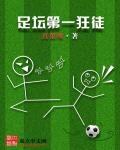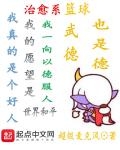Chapter 86: The Story of Jian Chong
As for the upcoming "Samsung Cup" quarterfinals, this is the only official professional competition that Li Xiangping can participate in at present, so he and his "plug-in" must of course make careful preparations.
The so-called careful preparation means to formulate a detailed game strategy for the game before the game. So how should this game be played? In other words, what game strategy did Li Xiangping and Shi Daqisheng formulate? This of course starts with the characteristics of the opponent.
By studying the opponent's chess records, Li Xiangping and Lao Shi agreed that their opponent, Yamada Kizo, 8th dan, was a standard "hardcore chess player". The so-called "hardcore chess player", according to Li Xiangping's understanding, means that the chess played by this type of chess player does not have any obvious characteristics, or in other words, his chess does not have any special highlights.
To make an inappropriate analogy, it is like a student who usually has above average academic performance. He is not biased in any subject and can pass or even pass well in every subject. However, he has no strong points and no subject can achieve excellence. Li Xiangping believes that his opponent this time, Yamada, 8th dan, seems to be similar to this kind of student.
Normally speaking, this type of chess player should not be difficult to deal with. Li Xiangping even thinks that based on the strength of his "plug-in", even if he is the old Shi before the upgrade, he should have a greater chance of winning against Yamada under normal circumstances. Moreover, after such a long period of training, it is hard to say whether his level has improved substantially, but he has at least become more adapted to modern chess games.
Therefore, Li Xiangping believes that the only thing to pay attention to, or the only thing to be vigilant about, is to take the opponent's competitive state into consideration. Yamada 8th Dan is in excellent competitive state at present, which is a basic fact. He can reach the final of the title match in China. At this period in real history, Yamada 8th Dan became the world runner-up. Therefore, from a certain perspective, it is not an exaggeration to say that Yamada 8th Dan is at the peak of his career.
Everyone must not take "competitive state" lightly. Li Xiangping has always believed that in Go competitions, especially human Go competitions, to a large extent it is actually a game of "comparing mistakes".
The outcome of a game of chess is often not determined by how good your best move is, but by how bad your worst move is.
This is why Li Xiangping particularly emphasizes "competitive state". Because if a chess player is in "good state", he may be limited by his extreme level and may not be able to make particularly sophisticated moves in the game. However, in this state, he will not make particularly bad moves in the game. It is entirely possible that all moves in a game are above the average level.
And the current 8th dan Kiyoshi Yamada is in exactly this state.
It was precisely because of this situation of the opponent that Li Xiangping felt that he needed to think carefully about how to deal with this competition.
But what should he do? To be honest, Li Xiangping didn't have any clues at the beginning. After all, "hardcore chess player" is not a positive word, but it is difficult to find the real weaknesses of this type of chess player, so it is difficult to formulate a targeted strategy.
In the end, it was the great chess master Ren Shi who had a solution: "How difficult is this? Let me ask you, my friend Xiang Ping, what do you think this type of chess player is best at? In other words, what kind of chessboard layout do they like the most?"
This sentence was a wake-up call for Li Xiangping. Yes! What do the "authentic" chess players like the most? Of course, they usually like to play Kung Fu chess. In other words, their best way to win chess is of course to play Kung Fu chess.
Based on the principle of "not letting his enemy achieve what he is best at", the strategy for this game is obvious: be as proactive as possible when playing chess, use proactive methods to put pressure on the opponent, and don't let the game fall into the track that the opponent is good at.
It must be admitted that this idea should be correct and the tactical thinking should be clear. However, before the game started, Li Xiangping was still a little unsure.
His uncertainty was not due to anything else, but simply because although the general direction was clear and Lao Shi also told him that he was going to take the initiative in this game, Li Xiangping did not know how to "take the initiative" specifically. He himself had no idea, and his plug-in did not tell him how he was going to play this game.
This is why Li Xiangping felt unsure.
While he was unsure, he was also a little bit expectant. He wanted to see what kind of performance his cheat could perform after several months of training.
The game officially started at 10:00 a.m. Korean time. By guessing the first move, Li Xiangping guessed that the black chess piece was selected. He began to place the pieces on the board according to Lao Shi's instructions.
The chess master Shi Da also seemed to be well prepared. After he chose the "Two Stars" opening, he spent almost no time on the first ten moves.
In less than half an hour, 22 moves had been made, and this half an hour of game time was almost all used by the opponent. Li Xiangping took the time to look at the stopwatch and found that the game time on his side had hardly moved.
At the 23rd move, Li Xiangping finally stopped.
It must be mentioned that at this time, Lao Shi had actually given him instructions on how to make the move, but after hearing Lao Shi's instructions, Li Xiangping laughed:
"Brother Ding'an, are you sure you really want to do this 'Sharp Charge'?"
"Yes, what's wrong, little friend Xiang Ping? I remember you were the first to tell me about this move, 'Sharp Charge'. I think this move is very good in this situation today, so let's do it here."
"But we haven't conducted in-depth research on this hand yet."
"It doesn't matter, just do as I say."
Li Xiangping was even happier: "Okay, as you wish, as you wish."
The reason why Li Xiangping was happy was because the move made by Lao Shi was considered a "dog move".
All the chess fans of later generations know that when it comes to the most famous "sharp charge" in Go, it should be the "sharp charge without worry corner" proposed by Mr. Wu Qingyuan. If you calculate the time, this move was proposed by Mr. Wu not long ago.
As for the 23rd move in today's game, it was actually a "dog move" that first appeared in 60 test games between the second-generation dog "master" and humans.
This is the reason why Li Xiangping laughed. You know, when Mr. Wu first proposed the "Sharp Chong Wuyou Corner", this move caused a lot of controversy. There was even a very famous professional chess player who disparaged the ancients and said: This move is a bad move and he could not understand it at all.
After the emergence of Go AI, there is nothing much to say about this move "Sharp Charge without Worry Corner". Go AI clearly tells everyone that this is a good move! Because if this is a bad move, then the "Sharp Charge" made by the "Master", which is the "Sharp Charge" that appeared on the chessboard today, is even worse.
"Let's not talk about the actual combat effect of this, but if I really do this, I'm sure the opponent will be surprised. It's good to make him impatient, hehe..."
It was with this mentality that Li Xiangping made this move with a smile.
Sure enough, after he made this move, his opponent looked up at him in surprise.
The story of this game of chess begins with this "sharp charge".






